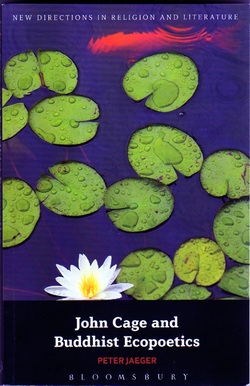
Peter Jaeger’s account in his new book, John Cage and Buddhist Ecopoetics, of Naropa Institute (now University) students in 1974 “throwing objects at the stage, playing the guitar, making bird whistles and screaming” (78) in protest of Cage’s performance from his book Empty Words, and of mainstream literary critics responding to Cage’s work with “ridicule” (149), recalled for me church, state and some Western conservative’s responses to Pussy Riot’s now celebrated/notorious performance at St. Basil’s. The power of avant-garde art is often as much in its disruption of its audience as in its disruption of artistic and social conventions, and in its unsettling ability to be resistant to interpretation while simultaneously offering unconceptualizable clarity of meaning. In both the Cage & Pussy Riot cases the artists also generated site-specific meanings. Enigmatic chanting by a poet with his back to his audience in a site of authoritative knowing. Uncoordinated dancing in a site and state of politically choreographed hierarchy. Fools in the seats of masters. Women seizing the altar of patriarchs -- including of course patriarch Putin. Moments of social anarchism in places – a cathedral, the Moscow Kremlin, the academy – of ceremonial enclosure.
Peter Jaeger’s John Cage and Buddhist Ecopoetics is itself an especially rich performance because, in not insisting on interpreting or summarizing John Cage, Jaeger also creates resonances of meaning. In a Canadian context, this book by Montreal-born Jaeger, now a leading conceptual poet and head of Creative Writing at the UK’s Roehampton University, can be read as a sustained demolition of thematic criticism. Texts, like other art objects or performances, have meaning mostly if that meaning is respected as irreducible, is left immanent, is not summarized in symbolic language; as Charles Olson quoted the Taoist poet Lao Tzu, “that which exists through itself is what is called meaning” (Muthologos I, 64). It's a principle that Jaeger has invoked and tried to observe throughout.
Despite its very precise title, John Cage and Buddhist Ecopoetics is an ambitious, wide-ranging book – an exercise in radical critical methodology, a denial of the Cartesian cogito, a critique of the lyric poem (especially the lyric as
 RSS Feed
RSS Feed